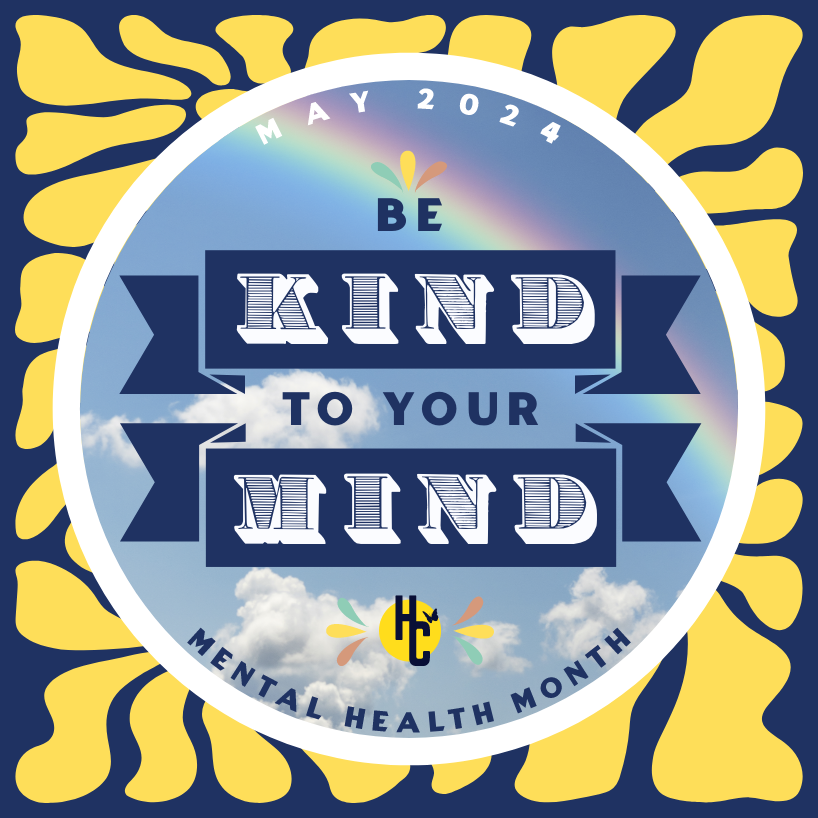
In May, we shine a spotlight on Mental Health Awareness Month, a tradition dating back to 1949. At Honor Connor, we’re actively involved in this movement all month long. Our goal? To break down barriers, stop stigma, provide support, educate the public, and spread hope.
Practical Tips for Enhancing Mental Wellbeing
1. Relax and Reduce Stress
Finding ways to relax is crucial for mental health. Whether it’s through meditation, reading, or spending a quiet evening with loved ones, taking time to unwind can significantly decrease stress levels.
2. Be Creative and Keep Learning
Engaging in creative activities like painting, writing, or any form of artistic expression can improve your mental health. Additionally, learning new skills or pursuing educational hobbies can keep your mind active and provide a sense of accomplishment.
3. Spend Time in Nature
There’s substantial evidence that being outdoors and immersing yourself in nature can elevate your mood and reduce feelings of stress and anxiety. Whether it’s a hike, a walk in a local park, or gardening, nature is a fantastic therapy for the mind. For ideas and encouragement, check out 1000 Hours Outside
4. Connect with Others
Building strong, healthy relationships with friends and family can provide invaluable support. Sharing your thoughts and experiences with others who understand you can significantly enhance your mental well-being.
5. Maintain Physical Health
Physical and mental health are deeply interconnected. Regular physical activity, a balanced diet, and sufficient rest can improve your mental health dramatically. Make sure to also monitor your physical health conditions that could impact your mental state.
6. Improve Your Sleep
Sleep has a profound impact on mental health. Establishing a regular sleep routine and creating a restful environment can help you manage stress, improve your mood, and even reduce the risk of depression.
7. Embrace Kindness
Practicing kindness can have profound effects on our mental health. Acts of kindness release serotonin, a neurotransmitter that helps regulate mood, making us feel more peaceful and content. Being kind can also decrease stress and improve our emotional well-being by fostering a sense of belonging and reducing isolation. By helping others, we often find purpose and affirmation, which are crucial for self-esteem and happiness. Challenge yourself to integrate small acts of kindness into everyday life and observe the positive changes it brings to your mental health.
8. Explore Faith and Spirituality
For many, faith and spirituality are sources of comfort and strength that contribute significantly to mental wellbeing. Spiritual practices like prayer, meditation, and attending services can foster a sense of community, provide a space for reflection, and offer solace during difficult times. These practices can also promote a sense of purpose and meaning in life, which are key components in overall mental health. Whether you are deepening existing beliefs or exploring new ones, integrating spirituality into your life can support emotional resilience and reduce feelings of anxiety and depression.
Here are several apps to help inspire meditation, and many are free!
… 5 Completely Free Meditation Apps to Help Center Your Mind, by Real Simple.
There are also several faith-based mindfulness apps for almost all religions. Here are some that we are familiar with:
• Abide
• Soultime
Understanding Mental Health Crises
What is a Mental Health Crisis?
A mental health crisis is a situation in which a person’s behavior puts them at risk of hurting themselves or others and/or prevents them from being able to care for themselves or function effectively in the community.
If you or someone you know is experiencing a mental health crisis, call the National Suicide Prevention Hotline: Dial 988 to connect with trained crisis counselors. This support number is available 24/7 for everyone, including veterans who can press 1 after dialing.
For more supportive resources, check out our full resources page.
Improving mental wellbeing is a journey, not a one-time fix. It involves making small changes in your daily life, being aware of your mental health, and seeking help when needed. Let’s promote kindness towards ourselves and others, and remember, early intervention is key to handling mental health challenges effectively. You are not alone, and help is always available.


Founder & Manager Director
Dealing with the loss of a loved one to suicide is complicated. We’re here help start the conversation & stop the stigma.